Fortune Rachel Notley: The Economic Impact of Her Leadership in Alberta
Fortune Rachel Notley
Rachel Notleyborn on April 17, 1964marked the political history of Alberta by becoming the 17th prime minister of this Canadian province of 2015 à 2019. Trained as a lawyer, she headed Alberta New Democratic Partybringing a different perspective to a traditionally conservative region.
Its economic legacy remains a subject of debate in Canadawith deficit budgets throughout his mandate. Under his governance, Alberta's debt would have risen considerably, from 11 billion à 86 billion dollarscreating a financial burden for future generations. His personal fortune is estimated at nearly 1.7 million Canadian dollars.
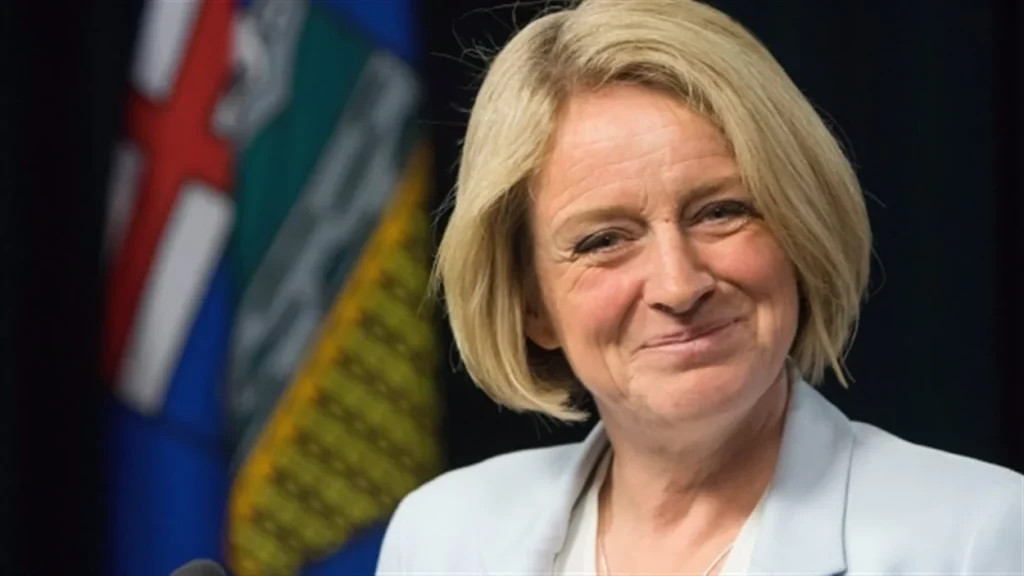
On the environmental front, Notley tried to reconcile Alberta's fossil fuel-dependent economy with climate concerns.
She has worked to clean up oil sands operations, close coal-fired power plants and develop renewable energies, adopting a progressive approach in an oil-rich province.
Biography of Rachel Notley
Rachel Anne Notley, born on April 17, 1964, marked Alberta's political history by becoming the province's 17th premier. Her professional career and political ascension testify to a steadfast commitment to defending workers' rights and progressive values.
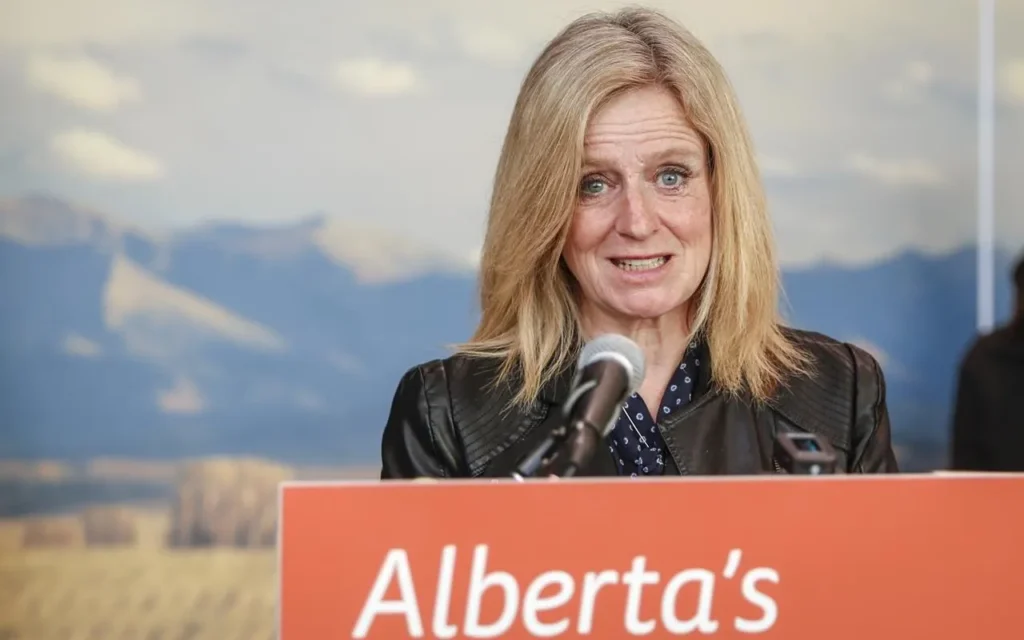
Early Career and Education
Rachel Notley graduated from the University of Alberta with a B.A. in Political Science. She went on to study law at Osgoode Hall Law School from York University à Toronto.
His legal training has enabled him to specialize in labor law and occupational health and safety.
Prior to entering politics, Notley worked as a lawyerdefending the rights of workers in British Columbia and in Alberta.
Her legal expertise provided a solid foundation for her future political career. In particular, she has worked for several trade unions, developing an in-depth understanding of labor issues.
Political ascent
Rachel Notley officially entered politics in 2008She was elected MLA for the riding of Edmonton-Strathcona. This first victory marked the beginning of a remarkable political career.

Visit 2014she was appointed leader of the New Democratic Party (NDP) of Alberta. His leadership transformed Alberta politics, culminating in a historic victory in the Alberta provincial elections from 2015.
Notley thus became the first NDP leader to lead Alberta, breaking the long dominance of the province's Conservative parties. She served as Premier of 2015 à 2019implementing progressive policies in a traditionally conservative province.
The New Democratic Party of Alberta (NDP)
The Alberta New Democratic Party is the leading progressive political force in this Canadian province. This party has left its mark on Alberta's political history, notably under the leadership of Rachel Notley.
NDP Philosophy and Policy
The New Democratic Party of Alberta, often abbreviated to NDP, is a provincial political party that stands for progressive, social-democratic values. It follows the Canadian left-wing political tradition, while adapting it to the Alberta context.
The Alberta NDP stands out for its commitment to public services, social justice and environmental protection. The party seeks to reconcile economic development with more inclusive social policies.
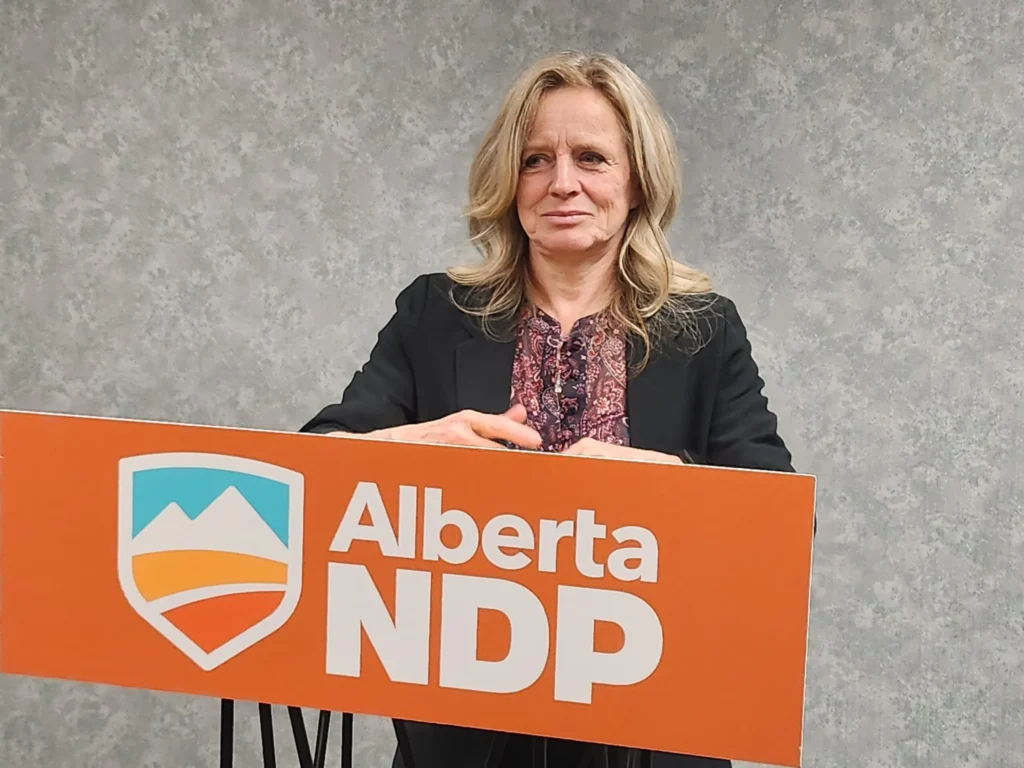
Visit 2021the party demonstrated its political strength by amassing over 6 million dollars in donations. According to Rachel Notley, this financial success reflects Albertans' growing frustration with the policies of the current government.
Rachel Notley and the NDP
Rachel Notley, born April 17, 1964 in Edmonton, is a leading figure in the Alberta NDP. Trained as a lawyer, she led the party to a historic victory.
Under his leadership, the NDP formed Alberta's first socialist government. This achievement marks a significant turning point in the political history of a traditionally conservative province.
As party leader, Notley modernized the NDP's image and broadened its electoral base. Her governance was characterized by reforms in education, health and the environment.
Notley's announced departure raises questions about the future of the party. Former political advisors such as Leah Ward, Cheryl Oates and Keith McLaughlin were consulted on the post-Notley NDP outlook.
Mandate as Premier of Alberta
Rachel Notley led Alberta as its 17th premier. 2015 à 2019. His administration has tackled major economic and environmental challenges while introducing progressive policies.
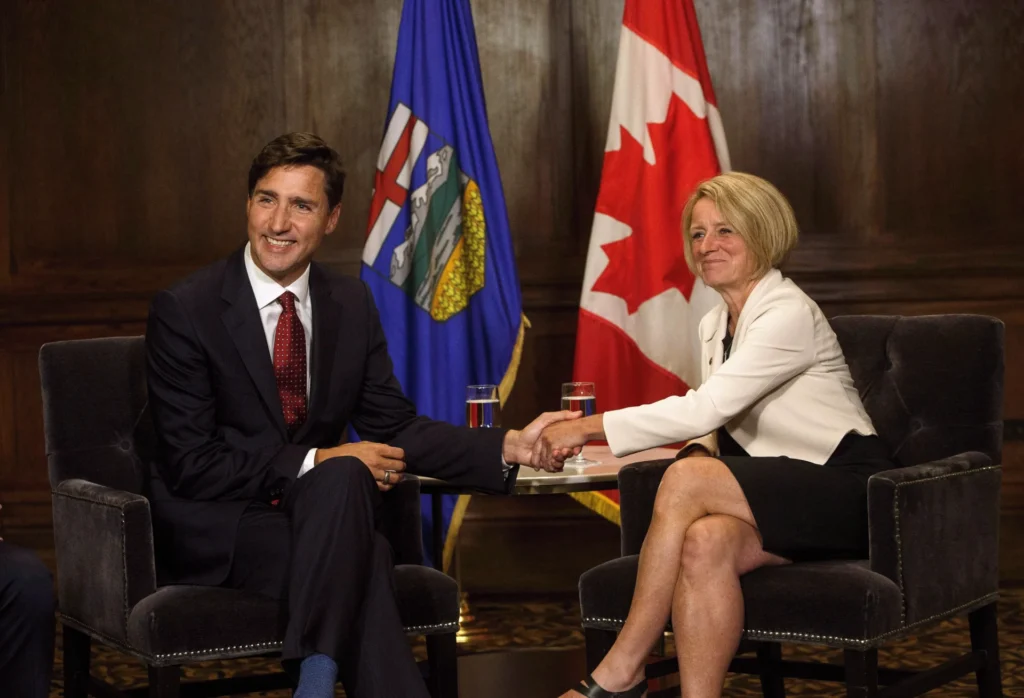
Main initiatives
Rachel Notley undertook several important reforms during her term of office.
She raised the provincial minimum wage to 15 per houra significant measure for low-income workers.
His government also invested in public infrastructure to stimulate the economy during the slump in oil prices. These projects included modernizing schools, hospitals and roads.
Notley reformed campaign finance rules to limit the influence of big business in Alberta politics.
It also strengthened protection of workers' rights and amended the Labor Code for the first time in decades.
Responses to crises
Visit 2016Notley faced one of the greatest challenges of his tenure: the catastrophic fire at Fort McMurray. His management of this crisis demonstrated his leadership in emergency situations.
It coordinated the evacuation of almost 90,000 people and mobilized significant provincial resources to fight the fire. His calm and decisive approach was widely praised.
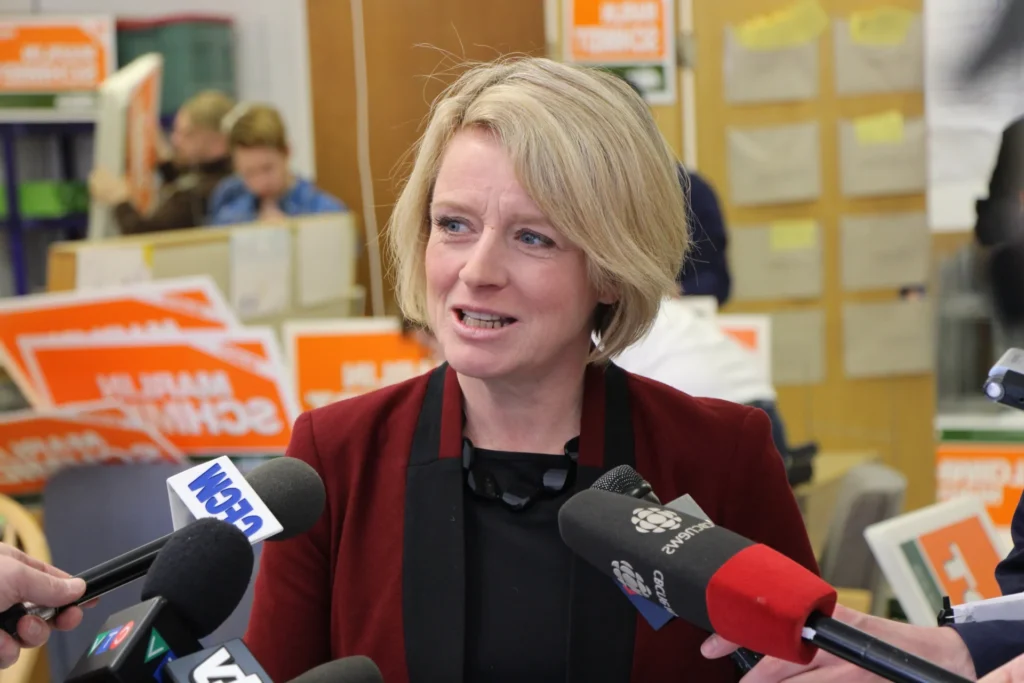
Notley also had to deal with a severe economic crisis caused by falling oil prices. His government introduced programs to diversify the economy and support the unemployed.
His response to these crises has demonstrated his ability to lead under pressure and find pragmatic solutions.
Environmental Policies
The carbon tax introduced by Rachel Notley in 2015 represents one of its most significant policies. This initiative aimed to reduce greenhouse gas emissions while preparing the province's economic future.
She has also established an emissions cap for the oil sands and accelerated the phase-out of coal. Her government has invested in renewable energies to diversify Alberta's energy mix.
These environmental policies were designed to balance climate concerns with Alberta's economic realities. Notley sought to demonstrate that an oil-producing province could also be environmentally responsible.
Despite the controversy, these measures represented a significant shift in Alberta's approach to climate change.
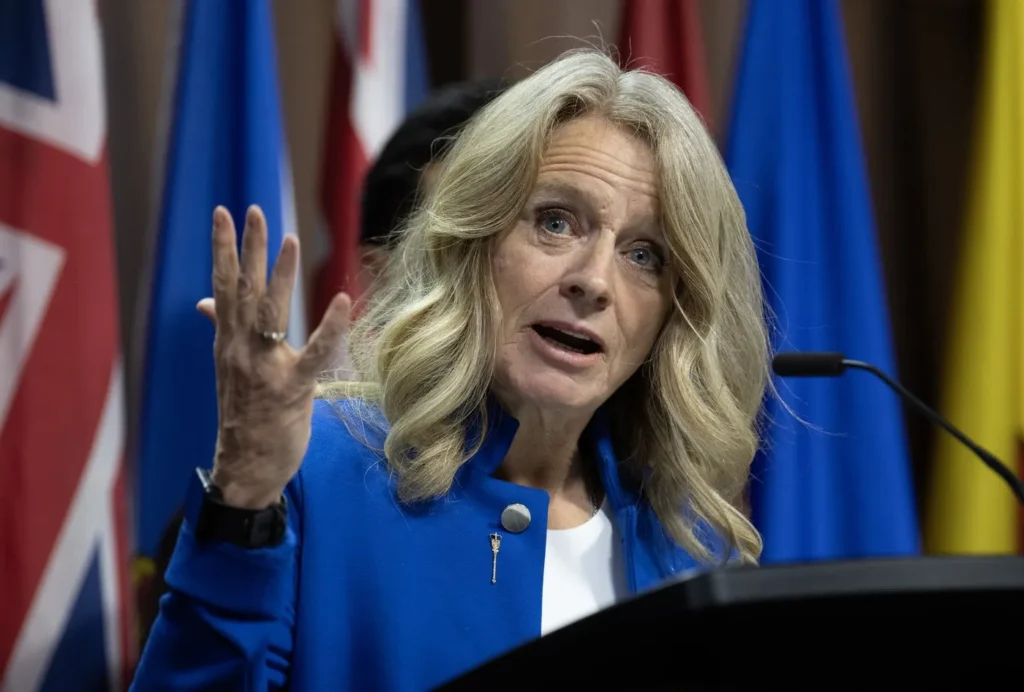
Leadership and Political Influence
Rachel Notley has transformed Alberta's political landscape with her distinctive leadership and progressive approaches. Her victory in 2015 marked a historic turning point in a traditionally conservative province.
Notley Leadership Style
Rachel Notley is renowned for her direct and accessible leadership style. She favors transparent communication and doesn't hesitate to stand firm for her convictions, even in the face of opposition.
As Prime Minister (2015-2019), she adopted a collaborative, consultative yet decisive approach. Her government implemented progressive policies while seeking to maintain a dialogue with the oil sector vital to Alberta's economy.
Her resilience in the face of criticism and her ability to stand up for her principles have strengthened her credibility with many Albertans. She is particularly respected for her defense of workers' rights, the environment and public services.
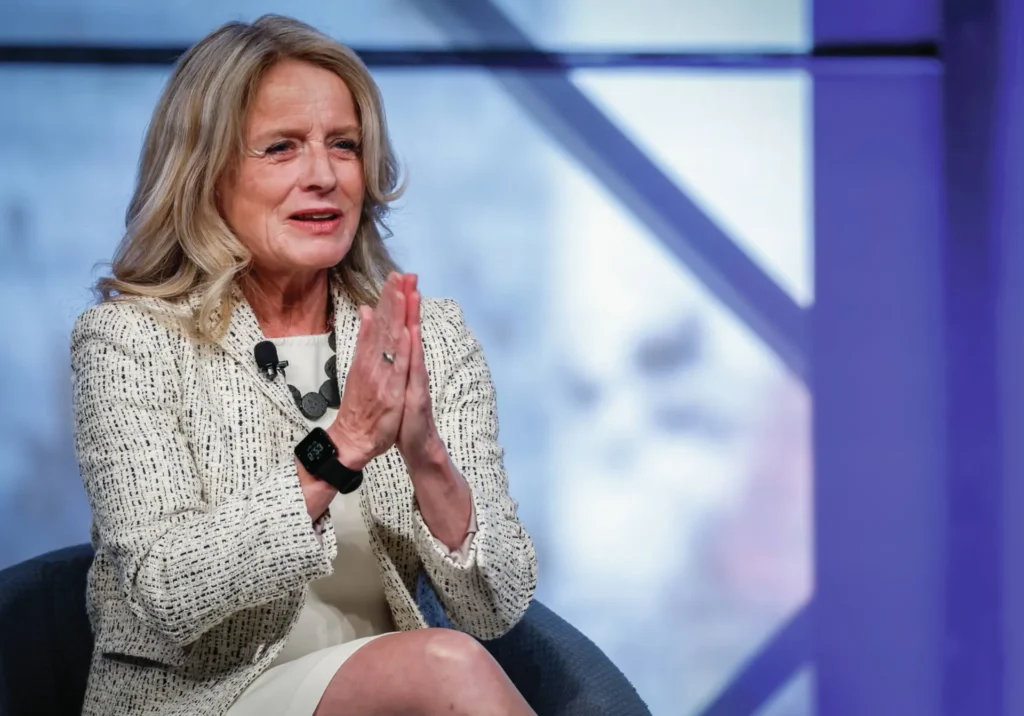
Impact on Alberta's Political Landscape
Notley's historic victory in 2015 has broken 44 years old reign of the Progressive Conservative Party. This change demonstrated that Alberta was not the exclusively conservative bastion many had thought it was.
Under his leadership, Alberta has seen the introduction of important progressive policies:
- Minimum wage increase
- Labour law reforms
- Introduction of a provincial climate plan
- Increased investment in public infrastructure
Even after losing power in 2019, Notley maintained a strong and credible opposition. His leadership helped normalize some progressive ideas in a historically conservative province and broadened the range of Alberta's political debate.
Rachel Notley's Political Future
Rachel Notley has announced her intention to step down as leader of Alberta's New Democratic Party (NDP). This decision marks a turning point after 10 years at the head of this political formation.
Although she is stepping down from her role as leader, Notley plans to remain MP for the riding of Edmonton-Strathcona, where she was first elected. She has stated that she intends to take " the time required "to think about its next steps.
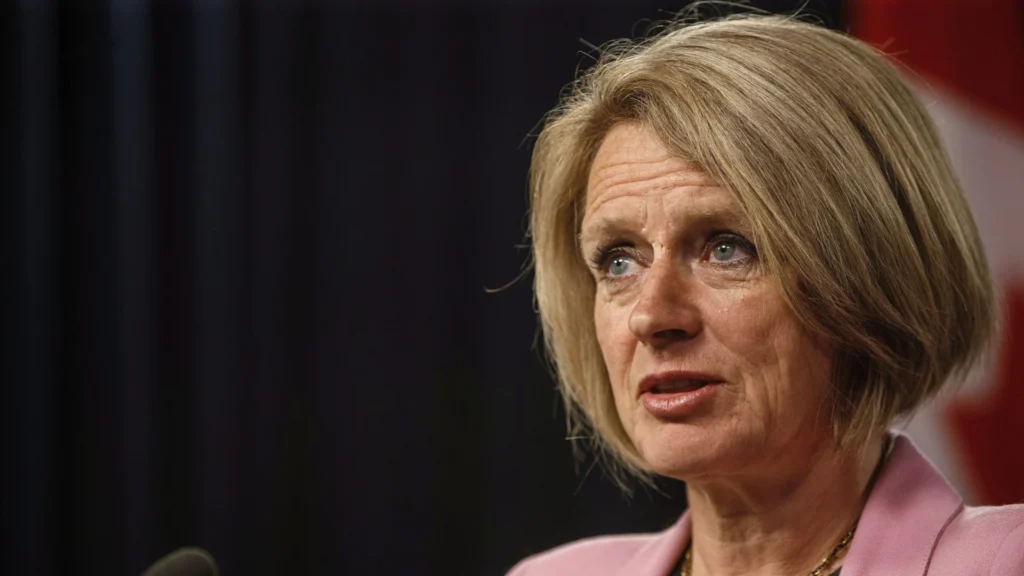
Her departure raises questions about the future of the Alberta NDP, of which she was the face for a decade. Under her leadership, the party experienced both significant victories and major challenges.
Born on April 17, 1964 à EdmontonRachel Notley has brought a clear vision to Alberta politics. In particular, she has distinguished herself by her constructive approach and commitment to dialogue, asserting that " calling each other names gets you nowhere" .
In Alberta's political landscape, her departure from the leadership of the NDP ushers in a new era. The next election will determine whether Notley's political legacy will live on in the party she led for so many years.
Investor Relations Analysis and Economics
Rachel Notley's economic approach marked a turning point in Alberta politics. Her vision influenced investor relations and the province's economic development during her tenure.
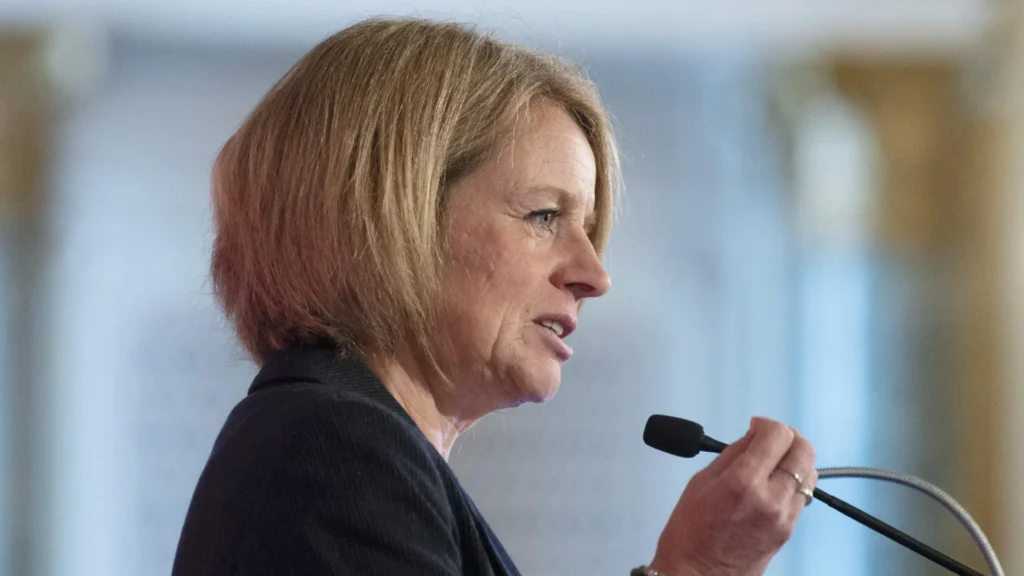
Investments in Alberta under Notley
Rachel Notley maintained a complex relationship with investors during her tenure. According to research, she was concerned about the uncertainty for investors caused by certain federal policies. She also defended her own initiatives.
His economic policies have been sharply criticized by the United Conservative Party, particularly his tax hikes. These measures have sparked debate as to their impact on Alberta's attractiveness to capital.
Notley tried to reassure investors about certain federal interventions. In particular, she welcomed Ottawa's purchase of major projects. However, she expressed reservations about other legislative initiatives which, in her view, could create further uncertainty.
Conservative critics pointed out that "investors vote with their money". They suggested that some of Notley's policies might have dampened investment in the province.
Economic Development
Notley's economic program included additional tax benefits to stimulate Alberta's economy. This approach was part of his detailed economic vision presented in Calgary.
His development strategy opposed that of the Conservatives, proposing an alternative path for provincial growth. The New Democrats under his leadership were considering specific tax measures in the event of re-election.

Notley's economic policies aimed to strike a balance between attracting investment and social programs. This middle ground has been both an asset and a liability, depending on political perspectives.
Debates in the Standing Committee on Finance highlighted the fundamental differences in economic approach between Notley and his opponents. These discussions often focused on the effectiveness of his policies in attracting capital while maintaining public services.
The Social and Legal Context of Notley Management
Rachel Notley's governance of Alberta took place in a complex political and social context. Her administration had to navigate between aboriginal rights and social reform, while seeking to balance economic development with environmental concerns.
Aboriginal Consent Issues
Rachel Notley has approached relations with Aboriginal peoples differently from her predecessors. Her government has recognized the importance of First Nations consent in economic development projects, particularly in the energy sector.
The Notley administration attempted to create a more rigorous consultation framework. This approach was intended to respect Supreme Court of Canada decisions on the duty to consult Aboriginal peoples.
Despite these efforts, tensions persisted, particularly around oil pipeline projects. Some Aboriginal communities criticized Notley's approach as insufficient, while others appreciated his openness to dialogue.

Social rights and legislation
Under Notley's leadership, Alberta has seen major legislative changes in social rights. His government raised the minimum wage and improved worker protections.
Rights legislation LGBTQ+ has also made progress, with measures to protect pupils in schools and strengthen inclusion in public policies.
In terms of gender equality, Notley formed the first parity cabinet in Alberta's history. This symbolic decision was accompanied by policies aimed at reducing the wage gap between men and women.
The Notley government has also attempted to modernize the health and education systems, despite budgetary constraints due to falling oil prices.
Impact of Notley Management on Climate Change
Alberta Premier Rachel Notley has unveiled an ambitious plan to combat climate change. The plan, unveiled in November, was aimed at reducing greenhouse gas emissions in a province heavily dependent on the oil industry.
At a public dinner, Notley made a convincing case for her government's environmental measures. She stressed the importance of balancing environmental protection with the province's economic needs.
Notley's plan has received the support of a number of strong allies, demonstrating his ability to rally different players around the climate issue.
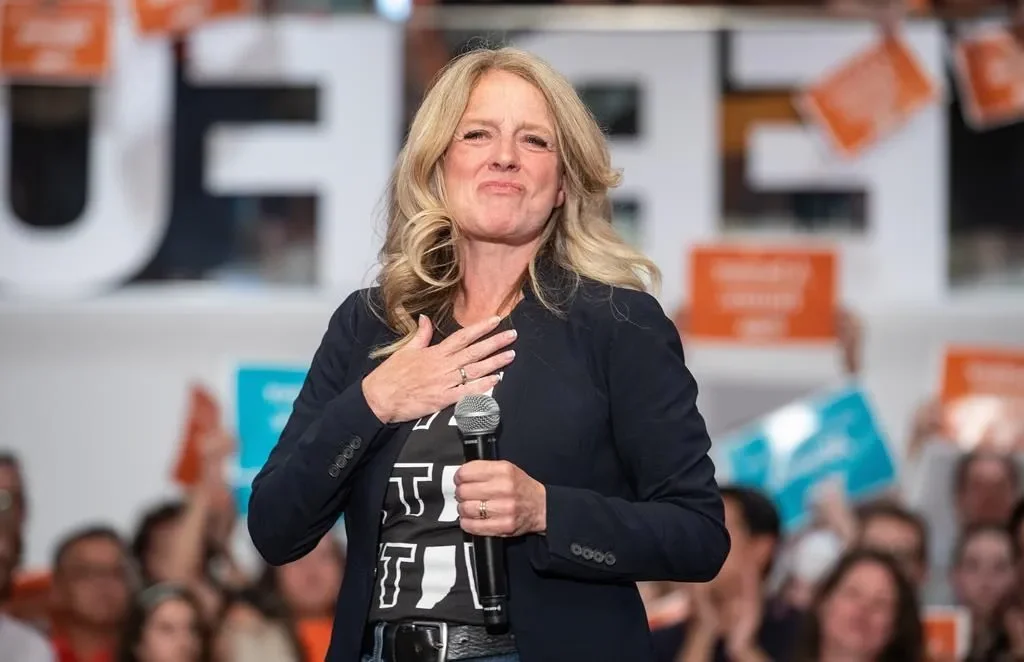
Notley also expressed concern that without strong environmental policies, Alberta would risk losing international investors. The latter are increasingly avoiding industries perceived as insufficiently committed to tackling climate change.
His approach included measures to mitigate the economic impact of these changes on Albertans. This strategy reflects our commitment to creating a just transition to a greener economy.
Notley also supported the federal NDP's plan to reduce greenhouse gas emissions. This position reinforces the consistency of her environmental vision across different levels of government.
Posterity and Cultural Influence
Rachel Notley has left her unique mark on Alberta politics, transforming public perception and contributing significantly to the province's cultural evolution.
Notley Public Collection
Rachel Notley is often described as a "transformative figure" in Alberta politics. Her historic election in 2015 has broken 44 years old conservative governance in the province, setting a remarkable precedent.

Despite his defeat in 2019Her image remains that of a pragmatic and determined politician. Her ability to " channelling some of Alberta's populism His "no-nonsense" approach to debates earned him respect, even among his opponents.
Notley's legacy remains controversial, however. Some Albertans praise his progressive policies, while others criticize the increase in provincial debt under his tenure.
Contributions to Alberta culture
Notley has helped redefine Alberta's identity beyond its traditional oil-related image. His "green" approach introduced a new dimension to local political culture.
Under his leadership, Alberta has invested 100 million dollars in artificial intelligence and cutting-edge technologies, creating 4,000 places for higher education dedicated to the technology sector.
This diversification has transformed the province's cultural and economic landscape. Alberta, once seen only as a petroleum province, has opened up to new creative and technological industries.
His influence can also be seen in the normalization of progressive values in a traditionally conservative province, broadening the spectrum of acceptable ideas in Alberta's public discourse.
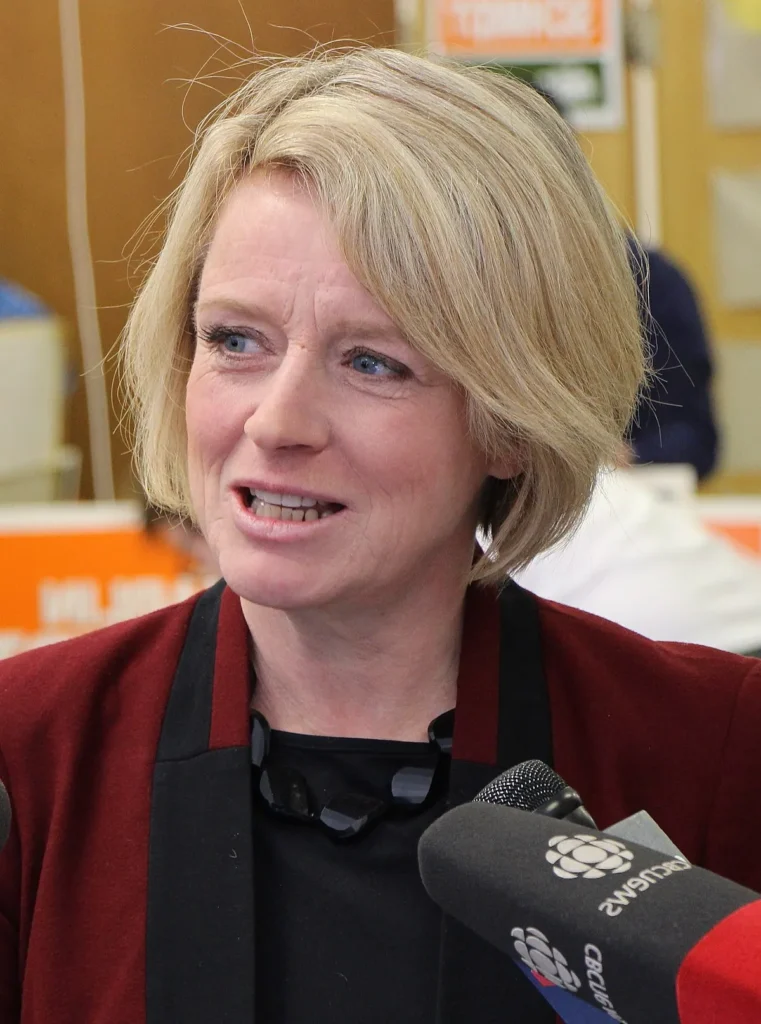
Conclusion
Rachel Notley left her mark on Alberta's political history during her years as NDP leader and premier. After ten years as party leader, her decision regarding her political future remains up in the air.
His legacy includes significant progressive reforms, despite the pipeline controversies that sometimes overshadowed his other legislative achievements. His pragmatic approach changed the face of Alberta politics.
If she decides to step down, there are several potential candidates to succeed her, although none has yet officially stepped forward. The Alberta NDP is at a pivotal point in its history.
After her defeat in the 2019 election, Notley quickly demonstrated her ability to play her opposition role effectively. She continues to be an influential voice in Alberta politics.
Notley's impact on Alberta politics will remain significant, whether she chooses to continue or pass the torch. Her career illustrates the challenges and complex realities of governing a province with diverse economic and social interests.
Frequently asked questions
Rachel Notley made Alberta's political history as the first female premier and leader of the NDP. Her political career has been characterized by progressive policies, economic challenges and a distinctive approach to energy and environmental issues.
What are Rachel Notley's major accomplishments as Premier of Alberta?
Rachel Notley led Alberta from 2015 to 2019, breaking four decades of Conservative governance. She raised the minimum wage to $15 an hour, a significant improvement for low-income workers.
Her government introduced a comprehensive climate plan, the first of its kind in Alberta. She also reformed political campaign financing to reduce the influence of big business.
Under his leadership, Alberta invested more in public infrastructure and social services, even during difficult economic times linked to falling oil prices.
What political challenges did Rachel Notley face during her tenure?
The oil crisis represented a major challenge, with the drastic fall in oil prices affecting provincial revenues. This economic situation limited its ability to implement certain promised reforms.
Notley had to navigate between environmental concerns and Alberta's economic dependence on the oil industry. This dual objective created tensions with environmentalists on one side and the oil industry on the other.
She also faced strong conservative opposition and resistance to her progressive policies in a traditionally conservative province.
How has Rachel Notley influenced energy policy in Alberta?
Notley took a more balanced approach to energy than her predecessors. She supported the oil industry while imposing a cap on oil sands emissions.
Its government has accelerated the transition to renewable energies, setting ambitious targets for green energy. This policy has stimulated investment in solar and wind power in Alberta.
She defended the construction of pipelines, notably the Trans Mountain project, while insisting on stricter environmental standards. This middle ground aimed to reconcile economic development with environmental protection.
How did Rachel Notley promote social and economic equity?
Notley introduced a tax credit for middle- and low-income families, helping thousands of Albertans. She also increased investment in public education and health care.
Its government has strengthened protections for workers and improved workplace safety standards. Labor law reform has facilitated unionization and strengthened employee rights.
It has implemented an affordable daycare program, enabling more parents, particularly women, to participate in the workforce.
What action has Rachel Notley taken on the environment and climate change?
Notley introduced a provincial carbon tax, the first of its kind in Alberta. This controversial measure was designed to reduce emissions while financing ecological projects.
Its "Climate Leadership Plan" included phasing out coal by 2030. This plan accelerated the transition to cleaner energy sources such as natural gas and renewable energies.
She also created Energy Efficiency Alberta, an organization dedicated to promoting energy efficiency and energy savings for homes and businesses.
What impact has Grant Notley's political legacy had on Rachel Notley's career?
Grant Notley, Rachel's father and former leader of the Alberta NDP, had a profound influence on her political philosophy. His values of social justice and economic equity are reflected in her policies.
Rachel continued her father's work to establish the NDP as a viable political force in Alberta. Grant's legacy provided her with a solid base in a province where the NDP was historically marginalized.
Grant's perseverance in the face of political adversity inspired Rachel's resilience. She faced a political environment often hostile to progressive ideas.







